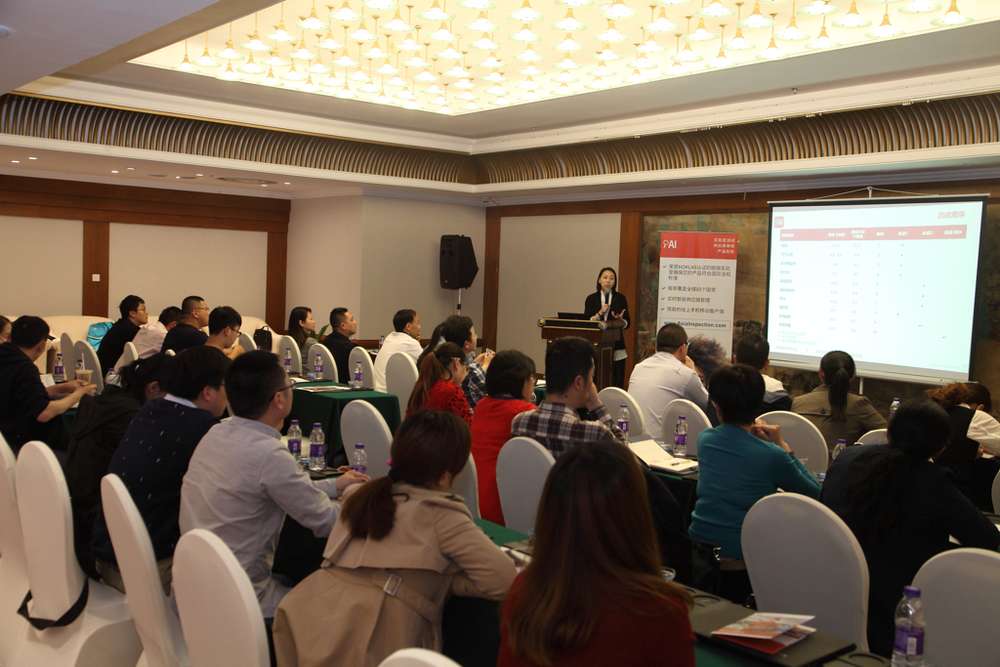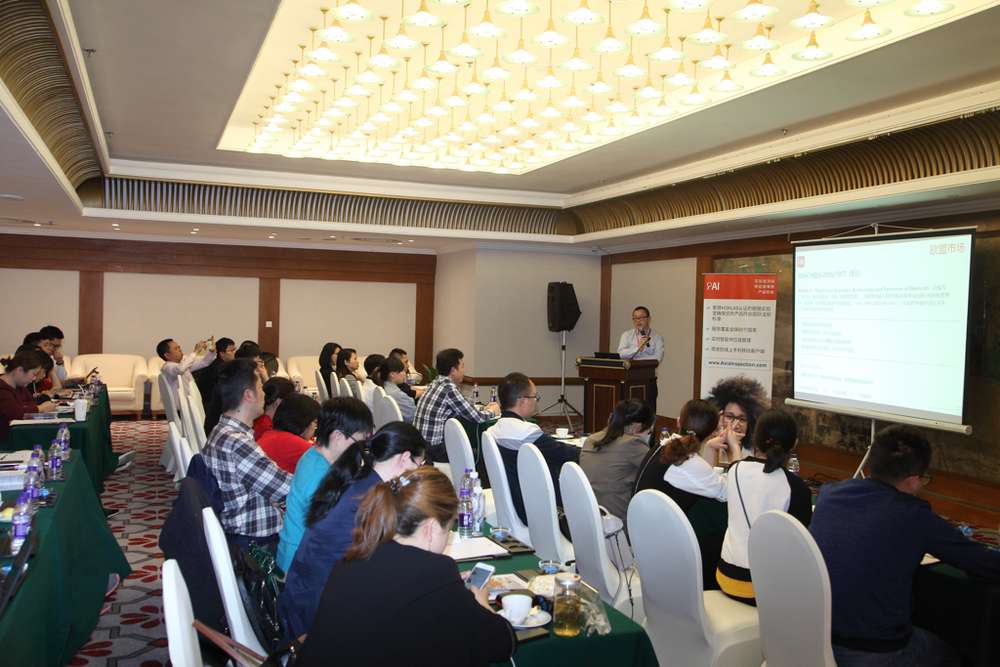News Article
QIMA Holds Product Compliance Seminar Hangzhou Laboratory Begins Offering Eyewear Testing Services
In response to the demand of our customers, QIMA has introduced the authoritative eyewear product testing technology from Hong Kong laboratory to Hangzhou laboratory. With the Hangzhou laboratory, which includes the testing technology of glasses, toys, garments and fabrics, QIMA will provide more comprehensive testing services for domestic customers more efficiently.
Shenzhen, May 9, 2018 (Newswire.com)
On April 25th, QIMA (QIMA) held a seminar on eyewear product compliance in Hangzhou, which mainly discussed the standards of eyewear testing and the directives of eyewear testing in the EU, US and other countries and regions. At the same time, in order to better serve the domestic eyewear suppliers, QIMA Hangzhou Laboratory started to provide eyewear testing service, which becomes another branch of QIMA besides Hong Kong that can perform eyewear testing.
In recent years, the domestic eyewear industry has been booming, with a proliferation of eyewear products and a continuous rise in consumption fever. According to Euromonitor's estimation, back in 2016, the retail market size of China's eyewear market reached 69.9 billion yuan, and it is expected that the overall size of China's eyewear industry is expected to reach 113.147 billion yuan by 2019. Among them, sunglasses are not only the largest consumer eyewear category in the domestic market, but also the largest branch of exports. However, the quality and safety issues that have been repeatedly reported have also become a hotspot of concern for brands, manufacturers and consumers.
The QIMA Hangzhou Seminar is a seminar that addresses product compliance issues of concern to brands and consumers. Click on the video below to watch the seminar.


In the seminar, Candia Tse, a senior eyewear testing expert, shared the European Union's eyewear testing standards, in which the prohibited access items were also clearly explained. Taking sunglasses as an example, the amount of nickel released from coated metal sunglass frames, color uniformity or matching of two lenses, resistance to light radiation, and the presence of warning labels on sunglasses that are not suitable for driving are all "thresholds of entry".
Compared to the EU market, the access to the US market appears to be more stringent. Kevin Lee, QIMA eyewear testing expert, introduced that products entering the US market are influenced by two legislative organizations:One is CPSC (Consumer Product Safety Committee)
Consumer Product Safety Commission (CPSC), the organization mainly on the safety of consumer products to set standards and monitor the implementation; another organization is ASTM (American Society for Testing and Materials) American Society for Testing and Materials (ASTM), which is mainly to develop the characteristics and performance of materials, products, systems, services and other areas of the standard, as well as test methods and procedures standards, etc. It is worth mentioning that in the Consumer Product Safety Improvement Act (CPSIA for short), the testing standards for eyewear products are quite different because they are categorized as children's products and non-children's products.
In this seminar, the participating experts agreed that both the EU and the US compliance directives have strict limitations on the testing of materials. For example, in the REACH standard for eyeglasses testing in the EU, the list of Substances of Very High Concern (Restricted) (SVHC for short) is clearly stated. "REACH stands for Registration, Evaluation, Authorisation and Restriction of Chemicals and is the European Union's most extensive legal framework for the preventive management of all chemicals entering its market.
Among these, nickel metal is classified as a category 1 skin sensitizer because it was and still is one of the main causes of contact dermatitis in EU residents. In the preamble of Directive 94/27/EC, it is clearly stated that "whereas the presence of nickel in certain objects in direct contact with the skin over a prolonged period of time may cause sensitization to nickel and may lead to allergic reactions; for these reasons, the use of nickel in such objects should be restricted", and that the limit of release is set, based on a series of scientific studies, at The release limit is set at no more than 0,5 μg/cm2/week based on a series of scientific studies. According to the REACH Directive 2004/96/EC of September 28, 2004, the test criteria can be summarized as:
For columnar components, a release limit of 0.2 μg/cm2/week was adopted. Elimination of content limits
Based on the targeted RA study in the LGC report "Risk of Nickel Sensitization in Humans with Perforated Columnar Parts" (2003).
Based on the recognition that it is an anomaly that perforated materials made of high-grade stainless steel for surgical implantation (ISO 5823) do not comply with the 0.05% content limit
Suitable migration limits approved by CSTEE opinion in November 2003
The 3-point endorsement applies an "adjustment factor" of 0.1 to the migration results measured according to EN 1811:1998 in order to compensate for inter-laboratory deviations and to invite CEN to review the standard in order to reduce the factor.
As a leading international provider of quality control services, QIMA has been providing professional quality inspection and auditing services to its clients. With three in-house laboratories and a large network of partners, QIMA's laboratory testing services have helped companies in more than 120 countries to ensure the quality and safety of their products. With the official opening of the Hangzhou laboratory, QIMA will be able to provide comprehensive laboratory testing services for eyewear, toys and apparel fabrics in China more efficiently and quickly.
About QIMA
QIMA is a leading international provider of quality and compliance control services, working closely with brands, retailers and importers worldwide to manage, optimize and secure their supply chains. QIMA's supplier audit program, product inspection and laboratory testing services are available in 85 countries worldwide.
With its unique online quality control management system, QIMA guarantees that a quality inspector will arrive at any designated factory in the world within 48 hours and issue a detailed quality inspection report on the same day. QIMA has 20 subsidiaries and 3 in-house laboratories around the world, headquartered in Hong Kong, with a total of over 2,100 employees.